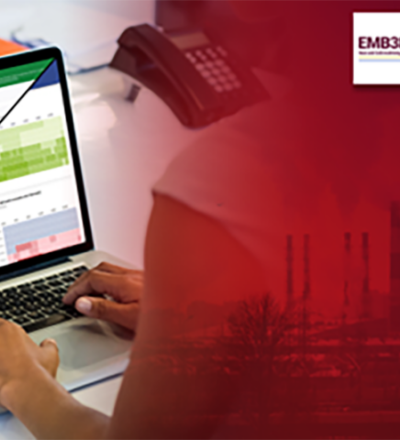The use of fossil fuels continues to contribute heavily to global warming. This and skyrocketing of energy prices push the majority of the industries to lookout for alternative and sustainable sources of thermal energy. The EU funded projects EMB3Rs and R-ACES have developed platforms that help reusing excess thermal energy. Interested stakeholders have participated to test these platforms.
In a hands-on workshop we experienced the features of both platforms.
Test: EMB3Rs heat and cold matching platform
With the help of given data from a case studie the participants tested the EMB3Rs heat and cold matching platform:
- Mapping of heat/cold sources and sinks
- District heating grid design and calculation of respective losses
- Calculation of costs for installation/construction of the network
- Calculation of economic impact (revenues & costs) for actors involved in the energy community
“For us as user of these platform, it is very important to get these hand-on trainings for learning about the different functionalities and analyses they offer”, states one of the participants. “Easy to run simulations of potentials energy flows already give us a first indication of where potentials for energy cooperation could be very useful and beneficial. Both in terms of saving energy and therefore CO2 emissions, but also in cost savings.”
“We are really happy to have potential users getting to know, and being able to test and learn how to use the EMB3Rs platform. It was an excellent opportunity to get additional feedback from relevant external stakeholders to try and incorporate it into the open access platform until the end of the project on 1st of June 2023. Of course, the platform will be maintained after this to ensure its widely available for the end users”, says EMB3Rs project coordinator Mafalda da Silva from INEGI.
“Being able to combine two platforms in one workshop was a great option to demonstrate two approaches, aiming to get less dependent on fossil fuels, saving energy and cutting CO2 emissions”, she adds.
Test: Energy Management Platform (EMP)
After a break the attendees also had the opportunity to test the R-ACES Energy Management Platform (EMP) and to test their potential for energy collaborations between companies.
“The R-ACES Energy Management Platform is an Information Communication Technology (ICT) tool that makes energy flows transparent, allows energy consumption and production to be allocated to specific installations, stakeholders and nodes, and also identifies anomalies and opportunities”, says ISPT’s Program Manager Agata van Oosten, who is coordinating the project.
“The focus of our tool is on the measurements which allow you to calculate the excess amount produced by the shared energy types and on the measurements of the current usage of the energy types by the collaborating companies who source the energy types differently at the moment”, points out Xavier de Moor, CEO of Condugo, the developer of the platform.
Conclusion
In total 25 participants discussed and tested the two platforms during the workshop. For those who missed the event or weren’t able to attend due to the limited number of participants the access to both platforms is possible through the EMB3Rs and R-ACES websites.
In addition, the recordings of the workshop will be published there.
Acknowledgement
This project has received funding from the European Union’s Horizon 2020 research and innovation programme under grant agreement N° 892429
